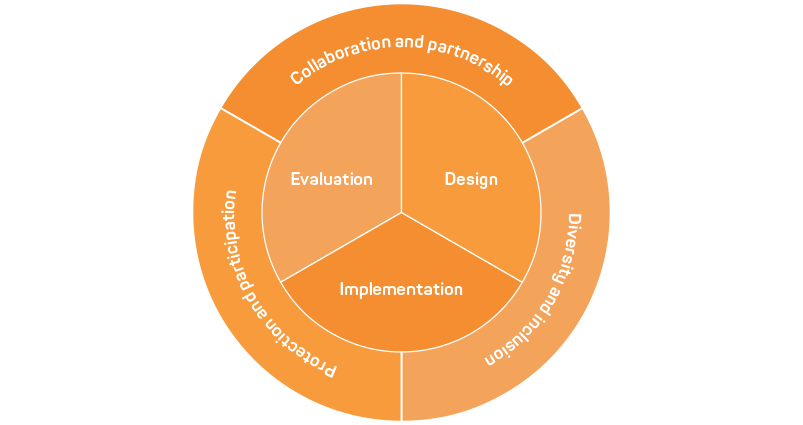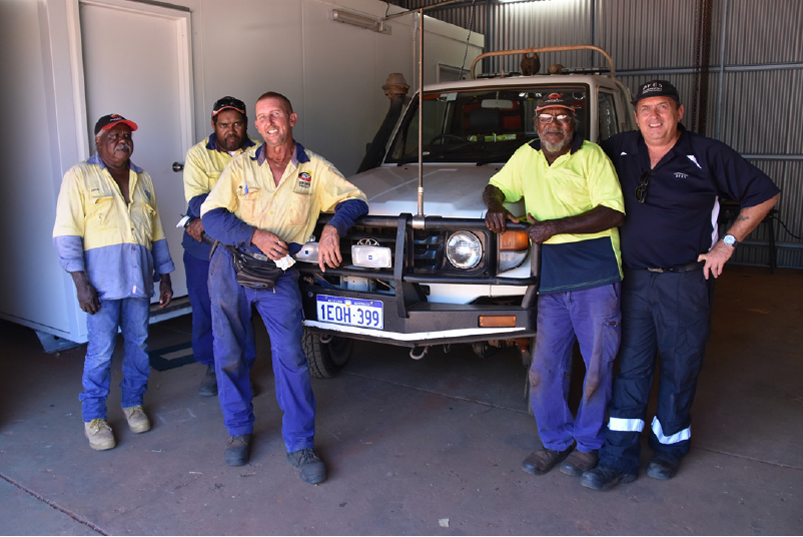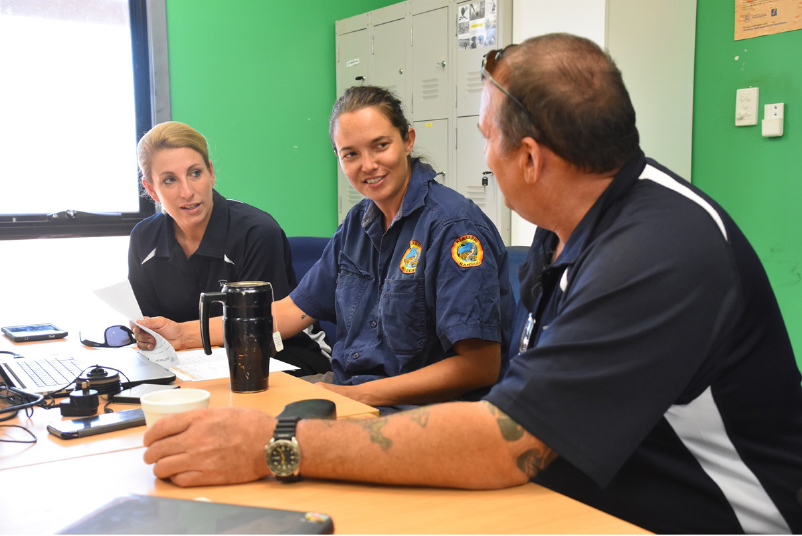In 2018, the Western Australian Department of Fire and Emergency Services (DFES) released a primary school education program to improve bushfire resilience. The North West Bushfire Patrol is geographically and culturally appropriate for the north-west regions of Western Australia.
The Sendai Framework for Disaster Risk Reduction 2015–2030 (UNISDR 2015)1 and Australia’s National Strategy for Disaster Resilience (Attorney-General’s Department 2011)2 both recognise that children play a critical role in increasing bushfire knowledge, awareness and preparedness in their households and within communities. Accordingly, the DFES has developed programs and allocated resources to deliver education materials to help children improve their resilience knowledge. Regionally specific resources like the North West Bushfire Patrol bring school-based bushfire education to Western Australia’s schools right across the vast state.
The research
In 2014, the Bushfire and Natural Hazards Cooperative Research Centre initiated a research project ‘Building best practice in child-centred disaster risk reduction’.3 This project provided the information and guiding tools to help develop quality education programs using an evidence-based approach. Tools included a practice framework for disaster resilience for Australian emergency management agencies. The framework has three guiding principles and three core dimensions (Figure 1). The practice framework was a useful tool and guided the development of North West Bushfire Patrol.

Figure 1: The practice framework used to develop the North West Bushfire Patrol.
Connection to and caring for Country is important for Indigenous peoples. As such, the classroom activities focus on the environmental effects of bushfire and the importance of practices like traditional burning in land management. Education resources were developed including considerations for the large proportion of students in the region with English as an additional language or dialect. Appropriate learning activities were developed to include the use of illustrations and photography.
DFES drew on the expertise of the Department of Biodiversity, Conservation and Attractions that has expertise and knowledge related to traditional burning practices and the impacts of bushfires on plants and animals. Other stakeholders included Indigenous ranger groups in the north-west, local DFES staff and volunteers and teachers in the Kimberley region.
Designing the program
The Kimberley region in north-west Australia experiences many bushfires and a considerable number are deliberately or accidentally ignited. The North West Bushfire Patrol includes clear and specific program outcomes designed to address this issue.

Volunteers from Bidyadanga Volunteer Fire Emergency Service in the Kimberley participated in the development phase of the program. Image: Nic Hatherly
For pre-primary to Year 3, these skills include:
- recognising unsafe campfire behaviour
- understanding that matches and lighters are tools not toys and knowing what to do if they find these items
- seeking help from an adult (or calling Triple Zero) when there is an unsafe fire, even if the fire is lit accidentally.
For Year 4 to Year 6, these skills include:
- responding appropriately when they see someone playing with fire
- determining bushfire weather and the times when it is safe to make a fire
- locating the Fire Danger Rating for their local area and understanding its purpose.
Activities in the program assist students to develop skills that:
- develop behaviours and identify ways to stay safe when there is a fire
- detect bushfire factors (e.g. changes in seasons and weather conditions) to prepare for bushfire.
Teaching and learning activities are varied and use a suite of learning approaches. These include inquiry-based, interactive and action learning as well as opportunities for students to carry out fieldwork and get involved in community-based activities.
Implementing the program
During the program’s research stage, the lack of professional development opportunities for educators was identified as a major impediment in the uptake of education programs. Research shows that when teachers are provided with assistance from relevant experts, they are more likely to use the resources in their classrooms.4

Linley Brown (left) involved with the consultation with Karajarri Rangers. Image: Nic Hatherly
As a result, the release of North West Bushfire Patrol coincided with a professional development session for teachers in the Kimberley that was held in Broome in February 2018. To ensure a high attendance in an area where relief teachers are rare and professional development opportunities limited, DFES partnered with two other government agencies. The resulting multi-agency, multi-program professional development session was held over two days. Teachers were guided through how to use the resources in the classroom. After the training, the teachers confirmed they were confident to deliver the bushfire education.
Evaluating the program
The DFES Community Preparedness Directorate implemented a monitoring and evaluation framework to provide a consistent approach to evaluating programs and activities. This framework will be used to assist in the evaluation of North West Bushfire Patrol and guide continuous improvement.


